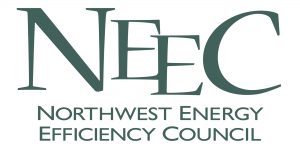Early this month, the WUTC issues a policy statement on the issue of regulatory treatment of regulated electric and natural gas utilities’ “lost margin” due to the effect of their energy efficiency programs. Sometimes referred to as “de-coupling” (unhooking a utility’s profit from sales volume), the issue has dogged the industry, locally and nationally, since the onset of utility energy efficiency programs. In essence, the regulatory question is whether and by what magnitude does a reduction in energy unit sales due to energy efficiency reduce a utility’s allowed margin from its net sales revenue (rate setting assumes a volume of sales sufficient to cover a utility’s fixed costs plus a margin). Energy efficiency, of course, reduces unit sales thereby reducing revenue to offset fixed costs. Utility’s here and across the country have made the argument that this can suppress a utility’s motivation to aggressively pursue energy efficiency. Fast forwarding through a nearly year-long WUTC process, the recent Commission report indicates a sympathy for a decoupling mechanism for natural gas, but little to no support for it for electricity sales. The logic for this decision is articulated in Docket U-100522 report available at www.wutc.wa.gov/DPD/codes.
NEEC finds the WUTC report deficient in its appreciation of the suppressive effects of current regulatory policies on utility energy efficiency efforts. Generally, the WUTC mischaracterizes the requirements of the I-937 statute with regard to its requirement to achieve “all” cost effective conservation. Moreover, the Commission report also tangles the related but distinct issues of lost margin with the generalized notion that energy efficiency is a lower cost resource than generation alternatives. While the latter statement is true, it does not address the specific problem of how a utility legitimately earns an approved margin as a result of “acquiring” the lower cost resource.
NEEC strongly encourages the Washington State Legislature to address the deficiencies in the WUTC report. The full economic potential of energy efficiency in Washington State will not be realized until a proper regulatory framework is in place that not only sufficiently protects the interests of ratepayers, but also provides a strong economic basis for an investor owned utility’s most aggressive pursuit of the resource.
